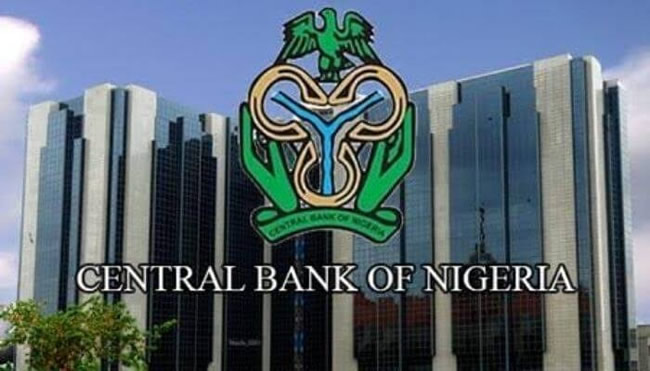The core investors in Union Bank, Polaris Bank and Keystone Bank are contesting the takeover of those institutions by the Central Bank of Nigeria (CBN), insisting that the process by which their respective boards and managements were removed was in violation of the rules set by the same apex bank, being the regulator of the banking sector.
The CBN had in a terse statement issued on the 11th of this month announced the dissolution of the boards and managements of the three banks over alleged corporate governance infractions and non-compliance with regulatory requirements.
The CBN had also appointed new executives, two each, to “oversee the affairs of the banks.
The apex bank had said the banks and their boards failed to comply with the provisions of Section 12(c), (f), (g), (h) of Banks and Other Financial Institutions Act (BOFIA) 2020.
Alleged N1.6b debt: Bank asks court to freeze oil firm’s assets, funds in 25 banks
How to keep Lassa fever at bay
It had also accused the boards and managements of the banks of breach of terms under which the banks got their licences and “involvement in activities that pose a threat to financial stability”.
The banking regulator’s action, according to many observers, followed the report of the forensic audit of the CBN under Godwin Emefiele, the ousted governor of the apex bank, by a special investigator appointed by President Bola Tinubu.
However, the investors in the three banks are challenging the CBN’s action, and have petitioned President Tinubu, seeking his intervention for them to recover their assets.
Allegations of foul play
Some investors in the three banks who spoke to Daily Trust on condition of anonymity, expressed concerns over the apex bank’s
“There were routine examinations of the banks and the CBN examiners, in our exit meeting in November (2023), were happy with the outcome because the issues were normal.
“Standard practice demands that every examination report is shared with the affected banks, outlining regulatory concerns and proposing necessary actions.
“In our case, the CBN deviated from this protocol, thereby violating its own laws, regulations, and established practices”, one of them said.
Another shareholder said: “The CBN, in its media release, mentioned a licence revocation. That is usually the last resort. Once you take over, the identity of the bank has to change and the liability has to be transferred to AMCON (Asset Management Corporation of Nigeria).
“In this case, there is no document today that we have telling us what this means. No shareholder is involved or engaged. We’ve seen them do similar interventions in the past with so many other players in this sector, and more recently with First Bank where the shareholders were invited to participate in the remediation process.
“When you invoke Section 12, you’re saying there’s no longer shareholding, but in CBN’s communication with the directors, they said the shareholders’ equity is intact”, he said.
Alhaji Auwal Lawan, a shareholder of Polaris Bank, who spoke to the BBC Hausa recently, in reaction to the CBN’s action, said: “I’m yet to confirm the veracity of the CBN action as I only read it in the national dailies. I am waiting for the CBN to communicate with us. Certainly, they would communicate to us to know our fate.
Asked what is the fate of the amount outstanding to be paid after they bought the bank from AMCON. He said: “It was CBN and AMCON that sold the bank. So, after we bought the bank, and were done with the handing-over procedures, there was a debt of N1.350 trillion which we should have been paid back to the Federal Government. If you buy a company, acquired both assets and liabilities. We discovered that the bank was being owed about N500 billion to N600 billion in assets and it was decided they stand at N600bn. We found out that the assets range from housing units and others in value of the said money, but we said no, they must be returned to the bank.
“We wrote to CBN and even the president (Tinubu), and we protested that all the assets/properties must be returned to us since we’re being owed more than N1.3 trillion. It was either we should get our assets back or be paid back our money. So, it was while we were dealing with this issue that this issue (of takeover) popped up.
“I repose confidence in the president (Tinubu) because he was a staff at Deloitte. He is familiar with the banking and finance sectors; so, I am unperturbed about it (the takeover).
“Now, I am waiting to see what would come from the CBN as I believe there was nothing done illegitimately. The documentation about the money (we) paid, its source, and the recipient’s account are all intact with us.
“And to this moment, CBN hasn’t yet written to us that it either seized the bank or took over our shares despite being backed by law to do so”, Alhaji Auwalu concluded.
Questions over capital adequacy
Section 12(h), cited by CBN, deals with capital adequacy ratio.
Financial statements of Union and Polaris banks show that both institutions met the regulatory requirements. Keystone Bank, on the other hand, did not publish its financial statement.
The Union Bank Plc’s unaudited financial statement for the period ending September 30, 2023, which was sighted by our reporter, showed that its gross earnings were up by 120 per cent to N309.1 billion, compared with the N140.6 billion it recorded in the comparable period of 2022.
Also, its profit before tax was up by 461.1 per cent to N102.3 billion, compared with the N18.2 billion recorded in the first nine months of 2022.
In the period under review, Union Bank’s capital adequacy ratio was 16.1 per cent, which is higher than the regulatory threshold, just as its non-performing loan ratio was only 3.7 percent, still below the industry benchmark of five per cent.
Also, Union Bank posted a liquidity ratio of 34 per cent, which was still above the industry threshold of 30 per cent.
For its part, Polaris Bank, in its financial statement, which was equally sighted by our reporter, disclosed that its capital adequacy ratio was 12.95 per cent, which is higher than the stipulated 10 per cent, while is liquidity ratio was 30 per cent and had a non-performing loan ratio of 21.4 per cent.
Another shareholder, who spoke to Daily Trust, said: “People own these businesses and you cannot extinguish the rights of the shareholders. Each of these institutions do not have less than N1 trillion balance sheet.
“If you say we don’t have capital, we are ready to bring it in. So far, no one has called us from CBN to discuss this matter”, he said.
A source hinted that the CBN excluded loan forbearance in the calculations that categorized the banks as having insufficient capital.
The source said: “Without Forbearance, the biggest banks in the country will also have capital adequacy challenges. Today, there are three banks who have negative shareholders’ funds and are still standing only because of CBN’s direct support; one of them to the tune of negative N275 billion. So, why the sudden drastic action against Union, Polaris and Keystone while the rest are left intact?”
“The way I see it, the CBN took over three healthy banks, while preparing a N600 billion liquidity support facility for one sick bank, and midwifing a merger for another sick bank.
“Somebody is dying and you rush to save him and the one that is healthy and living you kill. A CBN established in 1959 should have done better. The excuse of capital was just a smokescreen”, the source said.
CBN breached own laws
A member of the immediate past Board of Directors of the CBN said based on Section 34 of BOFIA, which stipulates the intervention powers in failing banks, the apex bank failed to comply with these provisions which outlined the processes to intervene in instances where examinations reveal growing concern issues in banks.
He said: “The powers of the CBN are not to be dispensed arbitrarily. There are precedent conditions. The CBN knows this and the banks also understand it. You cannot as a regulator cherry pick what to implement and that accounts for why the action is difficult to defend.
“Section 33 said the governor shall have the power to constitute a special examination or investigation of the books of the bank or its affairs. Section 34 talks about remediation. Can the CBN as currently constituted show proof that these processes as provided by BOFIA have been followed?”, the ex-board member queried.
Action can breed distrust – Analyst
A sub-Saharan Africa’s banking research analyst at Vetiva Capital, Olumide Sole, said the dissolution of the boards of the three banks “is not good generally for the banking system in Nigeria as it could breed distrust in the system.”
On his part, Muda Yusuf, founder and CEO of Lagos-based Centre for the Promotion of Private Enterprise, stated: “The main pillar of the banking system is confidence. This makes the financial system very sensitive to developments that could undermine the confidence of depositors and investors.”
“This is why the handling of current investigations concerning these banks needs to be done with utmost discretion, caution and care. We cannot afford a run on any of our banks at a time like this.”
A forensic accountant, Sunday Enenche, said: “If the action of the CBN is a revocation, then return the money of the investors. If it is bank failure, the NDIC (Nigeria Deposit Insurance Corporation) and AMCON should move in as we have seen in previous resolutions”.
When our reporter reached out to the CBN’s acting Director of Corporate Communications, Hakama Sidi Ali, for a reaction to the allegations of breach of process and selective justice, she did not respond to the messages sent to her mobile phone line.
CBN silent on allegations
Several efforts by our reporter to speak to the CBN’s acting director of Corporate Communications, Hakama Sidi Ali, over the course of five days were not successful as she neither answered calls nor responded to the messages sent to her mobile phone line seeking the apex bank’s reaction to the allegations of breach of process and selective justice.

 Join Daily Trust WhatsApp Community For Quick Access To News and Happenings Around You.
Join Daily Trust WhatsApp Community For Quick Access To News and Happenings Around You.


